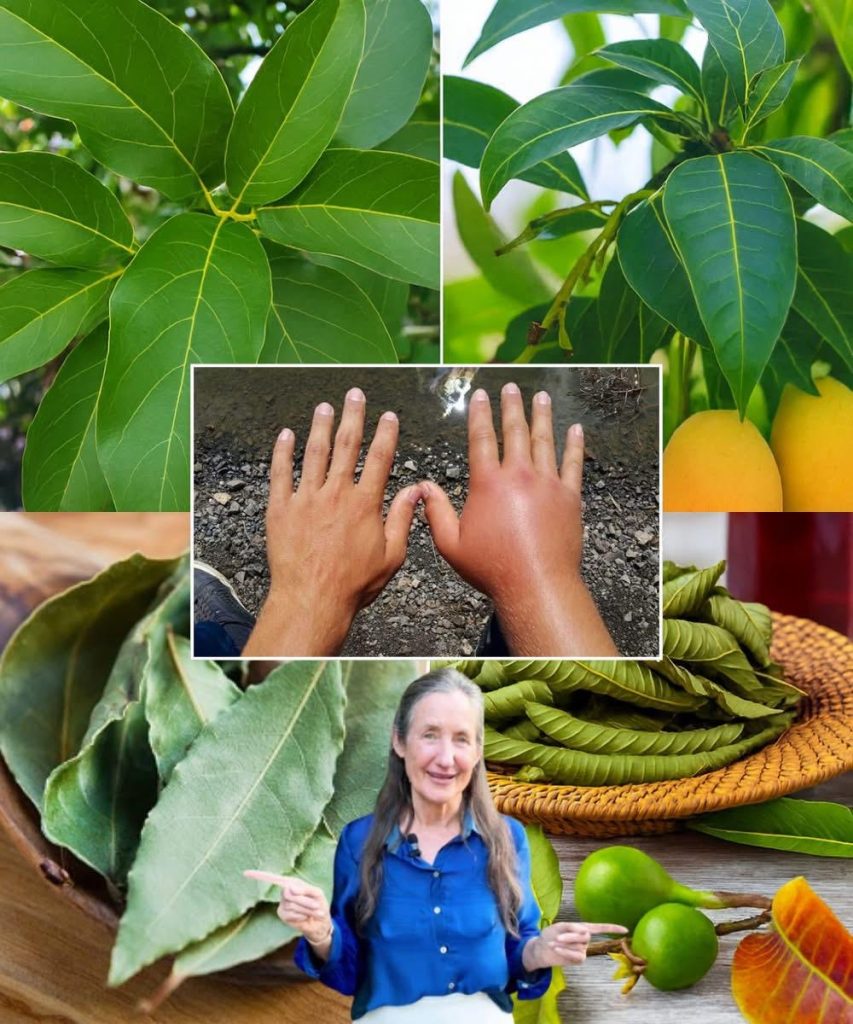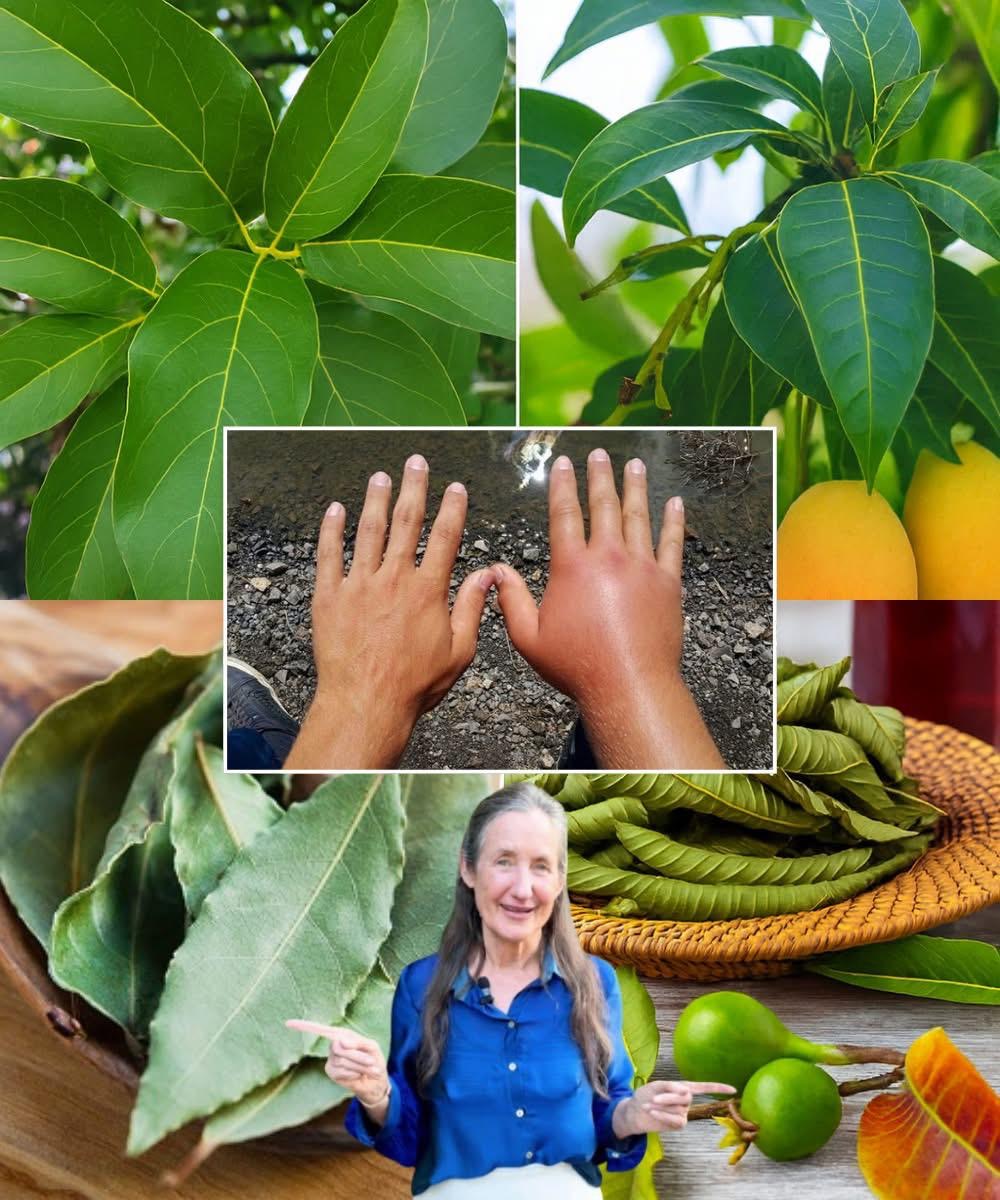
🌿 Mango Leaf Herbal Tea for Inflammation & Wellness
📖 Introduction
Mango leaves are often overlooked, yet they are a hidden treasure in traditional medicine. For centuries, cultures in Asia, Africa, and South America have used young mango leaves in teas and herbal infusions to treat inflammation, high blood sugar, infections, and swelling. When brewed correctly, they release powerful antioxidants, flavonoids, and tannins that help the body fight oxidative stress and fluid retention.
This recipe will guide you through making a natural mango leaf tea—a soothing drink that may help reduce swelling in the body (like seen in inflamed hands), improve digestion, and support overall wellness.
🥗 Ingredients
- 5–7 fresh young mango leaves (washed)
- 3 cups of filtered water
- 1 teaspoon honey (optional, for taste)
- A slice of lemon (optional, for extra vitamin C boost)
🍵 Instructions
- Rinse mango leaves thoroughly to remove any dust or impurities.
- Place them in a pot with 3 cups of water.
- Bring to a boil, then reduce the heat and simmer for 10–15 minutes.
- Remove from heat and let steep for another 5 minutes.
- Strain into a cup.
- Add honey or lemon if desired.
- Drink warm, preferably on an empty stomach in the morning.
🧑🍳 Methods
- Decoction Method: Boiling the leaves extracts maximum active compounds.
- Cold Infusion: Soak fresh leaves overnight in water and drink in the morning for a milder effect.
- Powder Method: Dried leaves can be ground into powder and added to smoothies or teas.
📜 History
In Ayurvedic medicine, mango leaves have been used for thousands of years to balance blood sugar, treat respiratory issues, and heal wounds. In African traditional medicine, they are brewed for fever and inflammation. Folk healers in Latin America often prescribe mango leaf tea for swelling and kidney health.
🌟 Benefits
- Reduces inflammation and swelling
- Supports kidney and bladder health
- Helps regulate blood sugar levels
- Boosts immunity due to antioxidants
- Improves digestion and metabolism
- May relieve stress and anxiety
🏗️ Formation (How it Works)
The active compounds in mango leaves include mangiferin, flavonoids, tannins, and antioxidants. These work by:
- Reducing oxidative stress (fights free radicals)
- Acting as a natural diuretic (reduces water retention/swelling)
- Improving blood circulation
- Calming the nervous system
🍽️ Nutrition (Per Cup)
- Calories: ~5 kcal
- Carbs: <1 g
- Rich in antioxidants
- Contains Vitamin C, A, and potassium
- Zero fat, zero cholesterol
💞 Lovers of This Remedy
- Herbal medicine enthusiasts
- People with inflammation, swelling, or fluid retention
- Those seeking natural blood sugar support
- Wellness lovers who enjoy plant-based healing
- Older generations who value folk remedies
🔁 Conclusion
Mango leaf tea is more than just a herbal drink—it’s an ancient remedy backed by generations of healing traditions. Its ability to fight inflammation, swelling, and imbalance makes it a powerful addition to your daily wellness routine. Whether you drink it warm in the morning or cool in the summer, this natural infusion can bring you comfort and vitality.
💚 Lovers of natural health will always cherish this simple yet powerful herbal secret.
